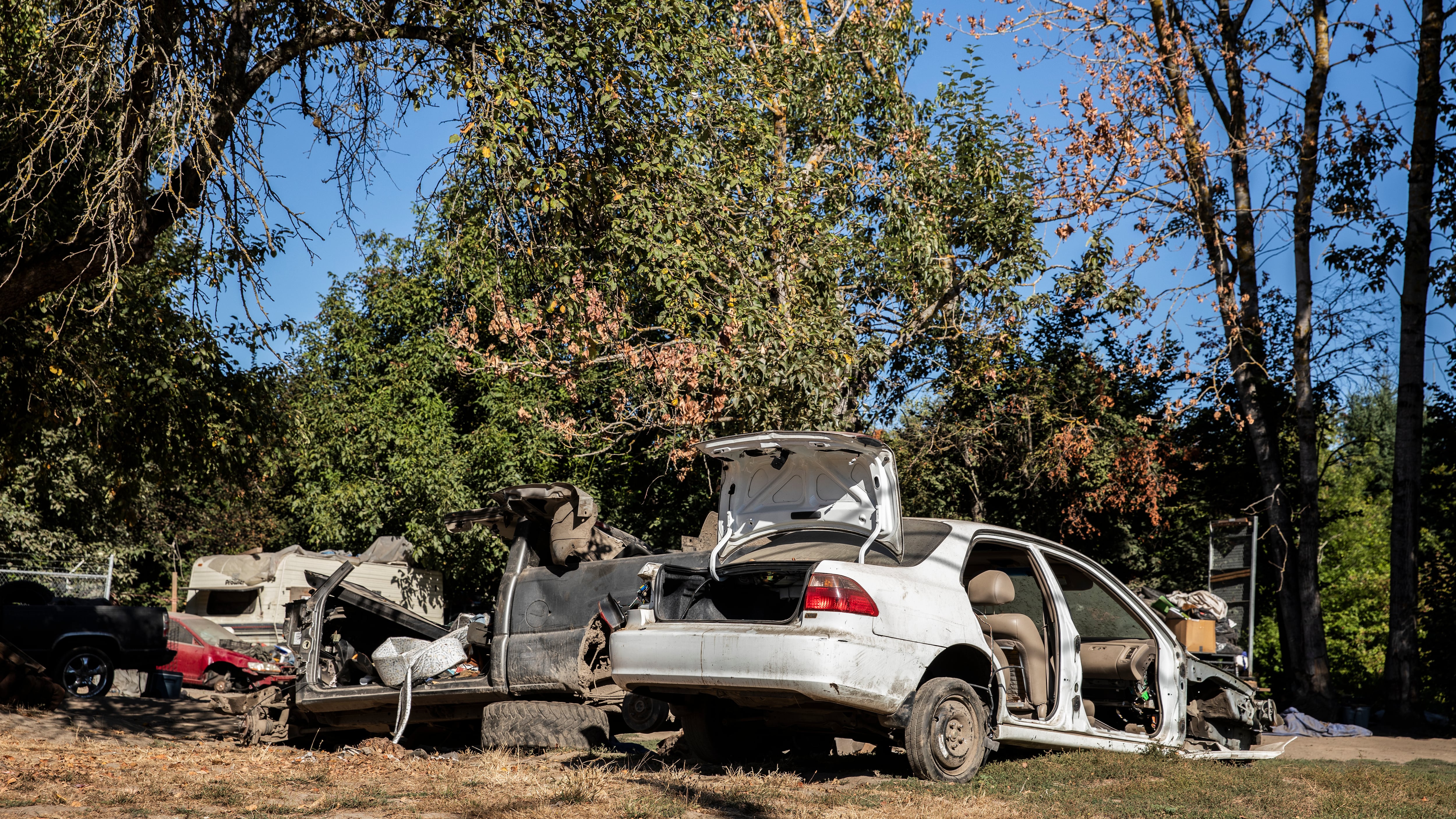For years I’ve seen the RV campers on Northeast 33rd dismantling and burning automobiles. Is this an open-air chop shop for stolen vehicles? Are they parting out their own disabled cars? Should I feel sorry for them, fear them, or both? —T. Thatcher
If you squint hard enough, T., you can find a reason to feel sorry for anybody. (“Stalin looks so lonely in photographs—there’s nothing but big blank spaces where his friends should be!”) However, those of us who’ve had two cars stolen in the past four months (but who’s counting?) might suggest feeling sullen contempt instead, perhaps leavened with a soupçon of homicidal fury.
If it’s any consolation (and it isn’t) your camp on Northeast 33rd isn’t unique. As reported in this newspaper last fall (“Strip Mall,” WW, Sept. 15, 2021), a number of these cheerfully informal auto-dismantling operations have sprung up around the city over the past year or two.
The smoldering wrecks you saw are not, by and large, the legal property of the people setting them on fire. In fact, that’s the whole point: If you own a car legally, you can just sell the whole car—title, vehicle identification number and all. If you want to make a buck off a car you don’t exactly “own,” however, your only option is to sell it in pieces small enough not to be traceable.
There are a number of ways to do this. After the obvious catalytic converter cash grab, aluminum cylinder heads and manifolds (those are big, heavy parts, for the uninitiated) are worth close to a buck a pound as scrap. There’s also copper, though not as much, in the wiring harness—releasing this may be one reason choppers are so fond of torching cars at the conclusion of the automotive vulture feast. And assuming you can scare up an address, you can take advantage of the brisk market for used parts on eBay, no questions asked.
However (unfortunately for meth dealers), there’s still no walk-in location where you can sell used parts qua parts for cash: Oregon law forbids dealers to buy major vehicle components without proof of ownership. Of course, Oregon law also forbids carving up stolen cars with a cutting torch in the middle of the street in broad daylight, so enforcement isn’t exactly draconian. If you want to found the Buffalo Exchange of car parts, this could be your moment.
Questions? Send them to dr.know@wweek.com.

